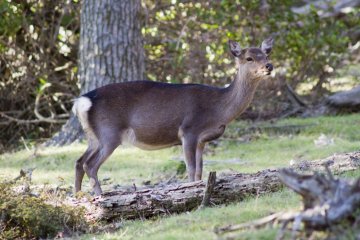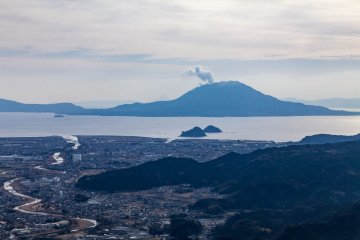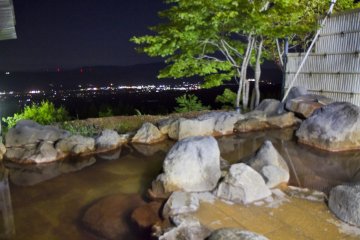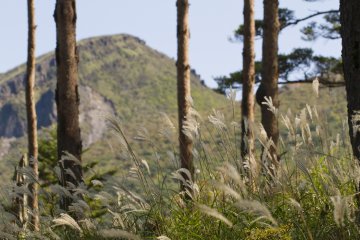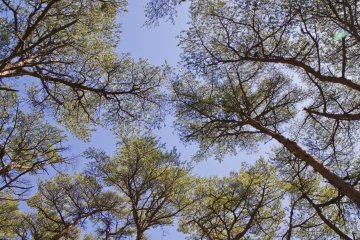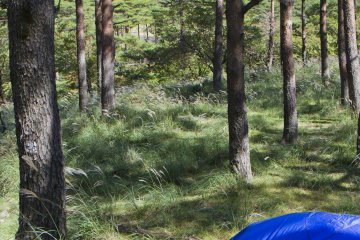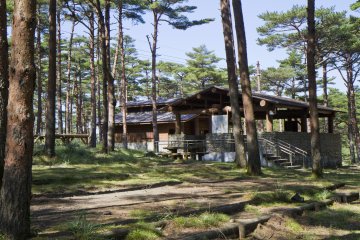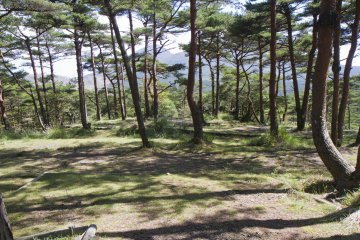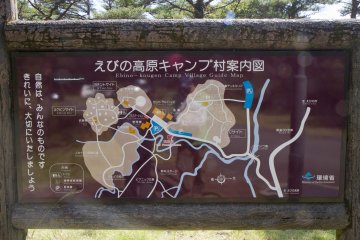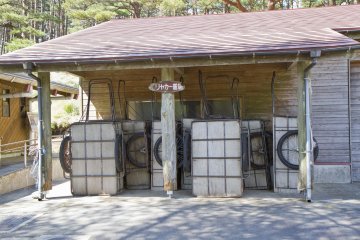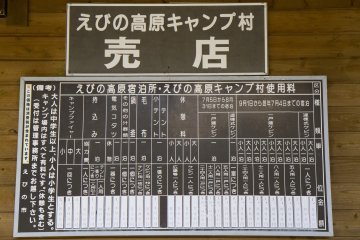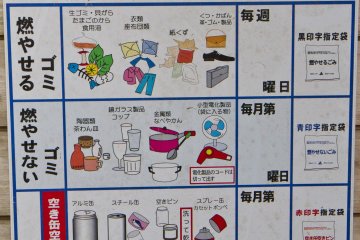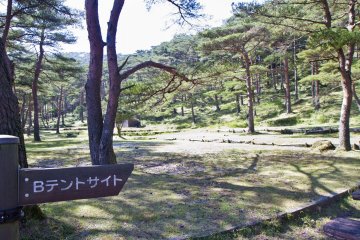A fantastic base to explore the natural wonders of Kirishima, this large and alluring campground spreads out over hills and under a sea of Japanese red pine. Being a national park, costs are low and the facilities are very good. Choose from tent camping or wood cabins and even picnic areas if you’re not staying the night.
This beautiful area in Ebino Kogen, a plateau, is at an elevation of about 1,200 m (3,937 ft) and stays cool even during Kyushu’s sweltering summer, averaging 24 degrees Celsius (73 degrees Fahrenheit) in July and having few bothersome insects.
The campground is within a ten-minute walk to the Ebino Kogen Museum Center, which has a visitor’s center, gift shop, and outdoor footbath. From the pay parking lot there, you’ll find the trailhead for the Ikemuguri Nature Hike. This trail ventures through forested mountainsides, visits a few volcanic lakes (Byakushi, Rokukannon, and Fudo ponds), and returns—unless you want to continue up Mt. Io, across the Susuki Plain, and onto the slopes of Mt. Karakuni and beyond to the other volcanoes of the park. Across the street from the parking lot is a large hotel and onsen.
Rates for staying the night at the campground are seasonal. Cabins range from 1,600 yen for adults to 9,300 yen for a cabin fitting 5 in summer. The largest cabin sleeps 24. Tent camping starts at 1,100 yen.
Tent sites are plentiful. Many spaces have elevated wooden platforms to keep your tent high and dry. Carts are available for free near the parking lot to carry your equipment up the smooth footpaths to where you’ll be staying.
Facilities include very clean wheelchair accessible bathrooms in the tent areas. There are also shelters with washing, food prep, and cooking spaces. There are small cooking fireplaces in the tent sites and special areas for bonfires. The camp store has tents for rent, bedding, firewood, pots, barbecue sets, and other equipment. Small foodstuffs may be available here, but no meat, fish, or fresh vegetables. Vending machines for drinks are located at the Central Lodge.
There’s also even an onsen available inside the campground, open in the afternoon from 2 to 8 pm. The water is especially good for muscle, joint, and nerve pain, sprains, bruises, burns, and several other maladies. A large field here has a picnic area and an outdoor stage. Near the field is an outdoor skating rink, popular in winter.
Although the open season is longer than most campgrounds in Japan, it’s closed from November to mid-December, and from mid-January through March.
Being in a national park, there are animals here—mostly deer and birds. You may hear the sounds of creatures calling out at night—eerily beautiful, but non-threatening. Enjoy your stay!



